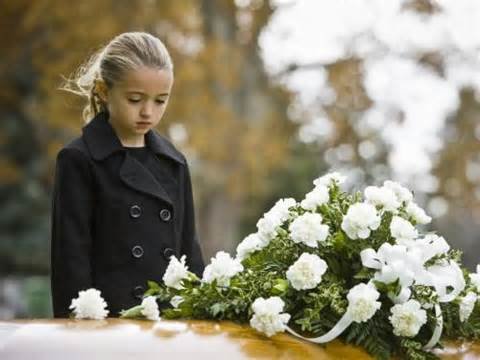Tips for Explaining the Concept of Death to Children
The passing of a loved one is an inevitable, but no less painful and emotional experience that all of us face at some point in our lives. However, as adults, while we wrestle with the void that death has left in our hearts, we have the maturity and in some cases, support of a faith system to help us heal and move on with our lives.
For children, this can be a very different situation.
Unlike us, a child is not yet fully cognizant of many aspects of life, including death or the complex nuances of a faith-based interpretation of the after-life. A child encountering the death of a loved one will not just experience pain, but also have many questions. And unlike adults, a child may expect someone to provide satisfactory answers. So what can you do when it comes to explaining death to a child?
Take Age Into Account
A child’s age is enormously important in considering how to talk about death. The younger a child is, the more simple and literal you will need to keep your explanation. If you belong to a particular faith, it is important to explain that faith’s concept of the afterlife in a simple fashion. However, especially for younger children, you should be quite literal when talking about the physical aspects of death.
If there was an accident or an illness that lead to death, explain in simple terms how this means that the physical body has stopped functioning, or “broke.” In similar fashion, keep it simple when talking about the fate of the body. Explain where the body is, whether that is buried or cremated. Do not use euphemisms such as the body itself having “gone somewhere” or the person being “asleep.” These will confuse the issue for a younger child, and the child may believe the next time you go to sleep, or go away to work, this means you will die.
Accept That This Talk May Be Upsetting
We all strive to protect the innocence of a child, but at some point, reality will intrude. A child’s first encounter with mortality is one of those times. It is unlikely for a child to escape psychologically “unscathed” from an experience with death. Be honest, especially if the child is old enough to ask questions about death and what happens afterwards. If you follow a faith, explain what the faith believes. If the child wants to know what other theories are about what happens after death, explain those as well.
If there are questions the child has about death that no one has the answer to, be honest about that. Admit that neither you nor anyone else is likely to provide a satisfactory answer since death is a mystery and all people can do is speculate and have faith. This is a philosophical issue your child may need to confront and wrestle with, but be there to discuss it with him or her and help to arrive at some kind of resolution.
Death affects everyone in different ways, but it is important to pay special attention to children during this time, as it always a formative experience. If you want to know more about funerals, the grieving process and how to work with children during this time, contact us at Laing Funeral Home. We’ll be happy to advise you.






Comments